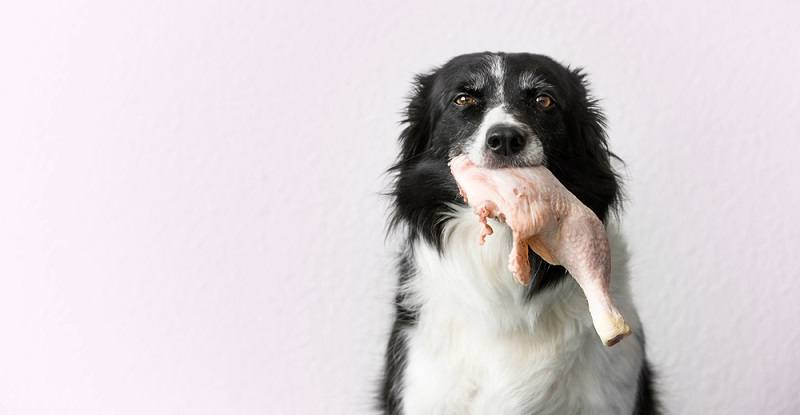Food allergies can be quite an issue when choosing foods for your pets.
You not only have to think of the best alternatives that don’t have the food they are allergic to but you also have to think of how to supplement the nutrients they are missing.
If your dog is allergic to chicken, for instance, you will have to look harder for alternative foods because most dog foods have chicken in them.
However, there are still some awesome chicken-free protein options for your dog.
Before we delve deeper into these options, let’s understand why your dog may develop chicken allergy in the first place…
Chicken Allergy in Dogs
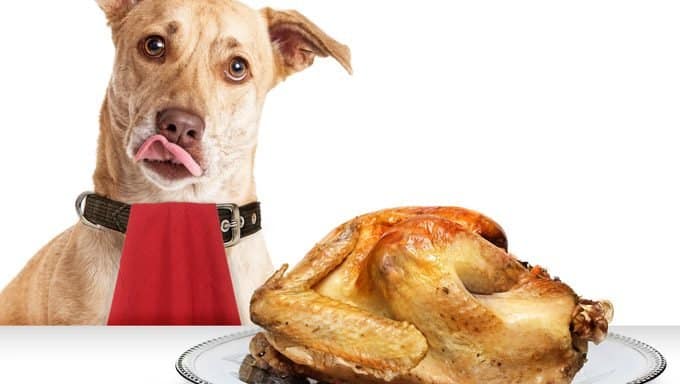
So, what causes chicken allergy in dogs?
Well, like other forms of allergies, a dog will develop an allergy to a protein source (like chicken) when his immune system becomes overly sensitive to the ingredients in the protein source.
In the case of chicken, your pup’s system will begin to identify chicken proteins as ‘dangerous’, and will trigger an allergic response every time your pup eats chicken or foods containing chicken.
This implies that every time your dog eats chicken or foods containing chicken, his body won’t break the chicken proteins completely considering that his immune system will be categorizing it as a ‘dangerous’ substance.
As a result, your pup’s immune system will respond by sending enterocytes to fight or eliminate the proteins.
One important thing to note about protein allergies in dogs is the fact that it is something that builds over time.
Your dog has to encounter the ‘bad’ protein source enough times for his body to recognize it as an unwelcome substance.
This explains why your dog may not manifest any signs of chicken allergy the first time he consumes chicken.
But once his sensitivity to chicken develops, things can get out of hand, especially if you continue feeding him chicken.
For instance, his immune system may respond more vigorously over time, agonizing allergy symptoms.
Learn more about protein allergy in dogs here: Protein Allergy in Dogs: What Every New Dog Parent Must Know
What to Feed
One of the best ways of dealing with protein allergy in dogs once it has been identified is to eliminate the suspected ingredient from a dog’s diet.
This translates to feeding your dog chicken-free foods or a special diet recommended by your vet.
If you opt for the first option, here are some good options of dog foods that have no chicken.
Disclaimer: Strive to always discuss your pup’s new diet with your vet or canine nutritionist to be certain that whatever you feed your dog meets all his nutritional needs.
1. Beef
Dogs are carnivores and will therefore be OK on a meat diet.
However, there are other essential nutrients like vitamins and carbs, so make sure to add those to your diet as well.
Your dog will enjoy cooked meat but you can also serve them some raw beef but only in moderation.
You should be very careful with raw beef however because it can lead to food poisoning.
As a rule of thumb, make sure the meat is fresh and has no seasonings.
2. Fish
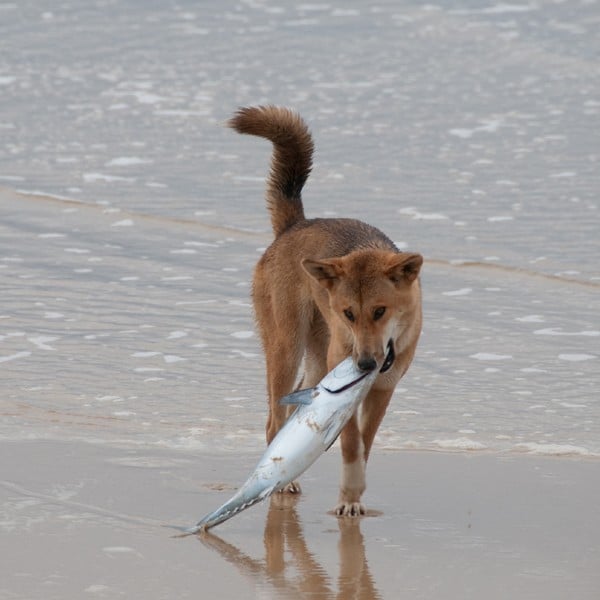
Fish is one of the greatest sources of proteins for humans and the same applies to dogs.
Fish has Omega-3 and lots of other useful amino acids that are needed in a dog’s body.
For instance, the Omega-3 fatty acids are known to keep arthritis at bay, prevent kidney disease and heart disorders among many other health benefits.
Both cooked and canned fish are ok but you may want to avoid raw fish.
Also, too much fish may cause more harm than good, so use it in moderation.
If your dog consumes too much fish, the fish protein could kill vitamins and thereby cause a vitamin deficiency.
3. Whole grains
Contrary to common belief, grains are not just fillers – they also provide minerals, vitamins, fiber, digestible protein, and essential fatty acids.
It is also generally believed that dogs should be fed on grain-free diets because they are carnivores and therefore ill-equipped to handle whole grains.
But there isn’t any scientific proof that grains are harmful to dogs. Examples of grains that are good for dogs include oats, corn, and polenta.
You can also try brown rice, wheat berries, and barley.
The secret to preparing grains for your dog is to mash them up before serving.
Also, ensure the grains are well-cooked because your dog may not fully digest raw or partially cooked grains.
4. Eggs
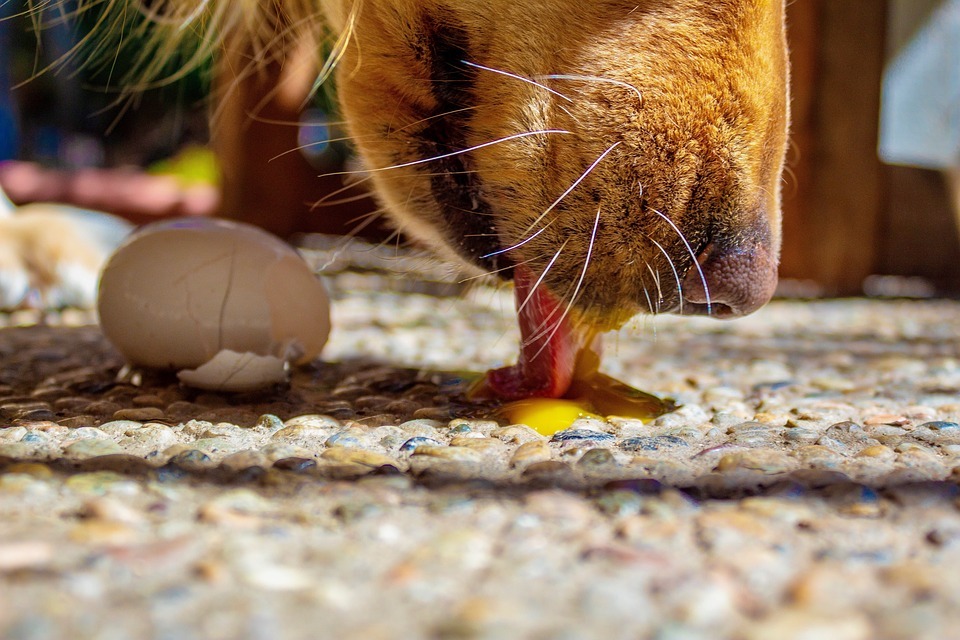
Eggs are another awesome protein alternative to dogs that are allergic to chicken.
Most breeders add eggs to their dog’s diet to give them healthy claws, shiny coats, and lots of other health benefits.
Most off-shelf dog foods also have eggs in them as a way of increasing the protein percentage in their treats.
Eggs are not just a rich protein source but they also have taurine, vitamin A, D, E, and B-12, iron, thiamine, zinc, biotin, selenium, and riboflavin.
All these nutrients play a significant role in the health and well-being of your dog.
However, just like beef and fish, make sure to only feed your dog with cooked eggs because raw ones can cause health issues.
5. Veggies
Canines don’t taste sweet flavors and that explains why most don’t like fruits and vegetables.
However, veggies are rich in potassium, magnesium, vitamins, and fiber, so you may want to include them in your dog’s diet.
The veggies can be a low-calorie alternative to dog treats that have chicken.
However, remember to feed your dog with another food that has protein for the main meal.
Vegetables that you can try feeding your dog include broccoli, cucumber, asparagus, or cantaloupe.
You can even try giving your puppy a veggie burger but make sure the patty doesn’t contain any onions and garlic.
Related Post: How to Prepare Vegetables for Dogs
6. Venison
Venison is an awesome protein source and it has more protein per gram than beef.
It also has very small amounts of phosphorous and oxalic acid and that makes it an ideal food for dogs.
Venison for dogs should be lean and not cooked with any spices.
However, do not overdo it because deer meat is red meat which means it shouldn’t account for more than 20% of your dog’s diet.
Also, don’t serve it raw – you can cook it till it is rare or rare medium and then serve.
You also want to remove any bones from the meat as the bones can be a choking hazard.
7. Cheese
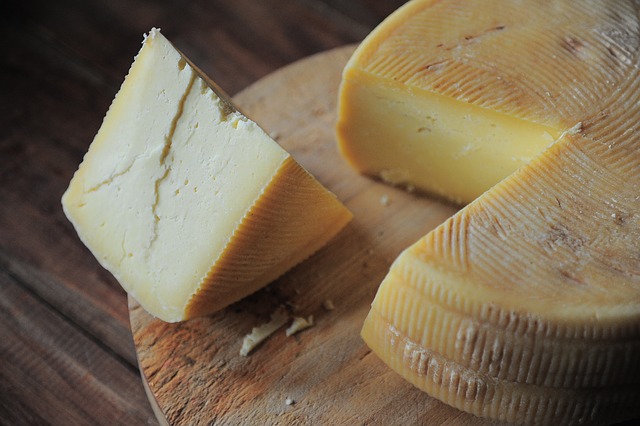
Cheese is not a meal but an awesome snack that can replace any chicken treat.
Cheese is often a clever way of hiding medication from the dog.
It is important to serve the cheese in moderation though – e.g. the size of dice at a time.
Because cheese is a dairy product, you may want to avoid giving it to your dog if they are lactose intolerant.
Feeding cheese to dogs that are allergic to dairy products can result in diarrhea, gas, itchy patches on the skin, vomiting, and hair loss.
8. Duck
Wild dogs which have to rely on hunting to survive have made duck an important part of their diet.
While domesticated dogs might not necessarily hunt for duck, you can still make duck meat a part of their regular diet.
Duck is actually a great alternative for dogs with chicken allergies.
In addition to protein, duck meat has copious amounts of zinc, Vitamin B, and Iron.
Just as is the case with any meat, prepare your duck as simply as possible and resist the urge to add herbs and spices.
9. Chicken-free feeds
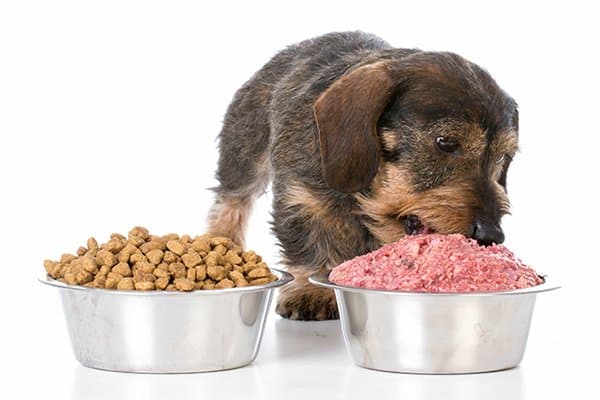
Even though most off-shelf foods have chicken, there are lots of alternatives that are chicken-free.
Just go to the store and ask for the options you have for a dog that is allergic to chicken and you will have enough brands to choose from.
You can also buy them online on Amazon or on any other website that stocks pet foods.
Parting Thoughts
If your dog is vomiting or scratching his body due to chicken allergy, it is high time you eliminated chicken protein from his diet
However, as aforementioned, you may want to consult with your vet before you switch to any new food that you haven’t been feeding your furry friend.
This is especially so if you are thinking of feeding them with human food.
Also, as you think of chicken alternatives, remember that your dog still needs a balanced diet.
Even though protein is the largest nutritional requirement for canines, they still need minerals, vitamins, and fiber.
So, make sure you are feeding them a balanced diet to avoid any nutritional deficiency.
As an Amazon Associate, we may receive a small commission from qualifying purchases but at no extra cost to you. Learn more. Amazon and the Amazon logo are trademarks of Amazon.com, Inc, or its affiliates.

